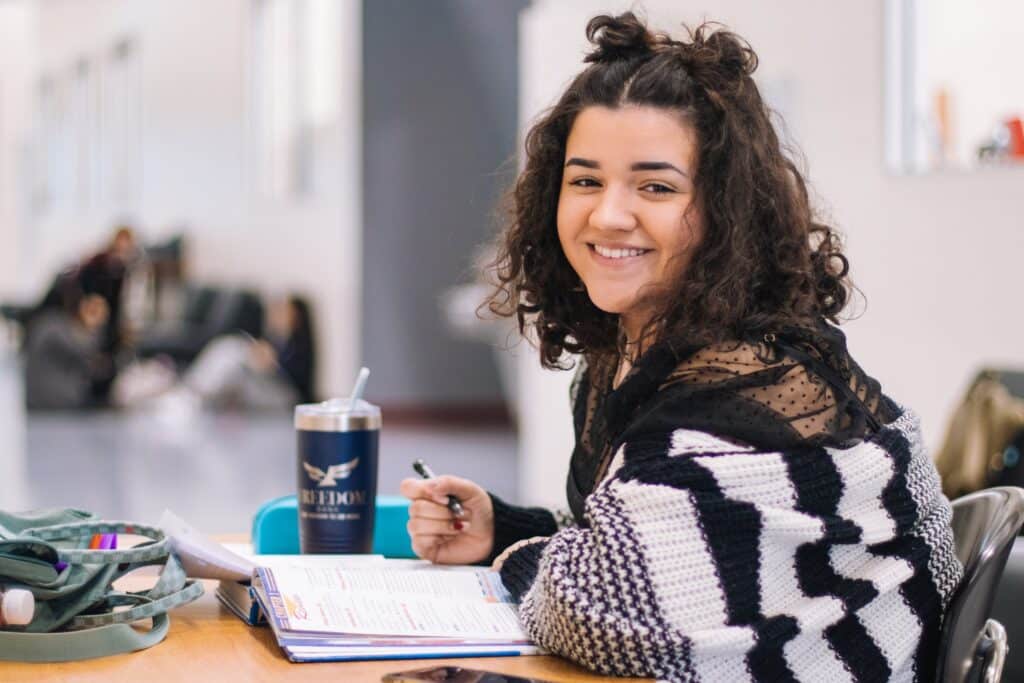Making the move Down Under? You’ll probably be researching a lot of things right now, from how to file your taxes in Australia to how to open a bank account in the country. And, if you’re relocating with kids in tow, you’ll want to know how the Australian Education System works when it comes to primary and secondary education.
Given that Australia is a huge nation made up of several autonomous regions, it’s perhaps unsurprising that the school system is pretty complex. But don’t worry: at Remitly we’ve done our homework on Australian schools, so read on for a summary of what to expect.

School types in Australia
Schools in the Australian Education System can be broken down into three main categories. Let’s look at each in turn.
Government schools
More casually known as state schools or public schools, these cater to the majority of children in Australia. The government schools in a particular state or territory will usually follow the same term times, and they won’t charge fees for attendance. That said, you should be aware that many will request voluntary contributions from parents, to pay towards things like classroom equipment, educational trips, school social events, and so on. Some government schools are selective, meaning prospective students must pass academic exams to gain entry.
Catholic schools
The second-biggest provider of education to children, after the government, is the Catholic Church in Australia. You don’t necessarily have to be Catholic to enrol your kids at Catholic schools, as long as you’re happy for them to be taught in an institution with a Catholic ethos, and to take part in religious education along Catholic principles. However, many such schools will undoubtedly give priority to children who have been baptised Catholic. Fees will usually be charged for attendance at Catholic schools.
Independent schools
Also known as non-government schools or private schools, these make up the third-biggest sector in children’s education Down Under. They may have their own school boards or form part of larger organisations, and, as you can probably guess, they charge fees for attendance. Independent schools may be faith-based, such as Islamic schools, or they may be orientated around a particular educational approach, such as Steiner schools.
You may be reassured to know that all schools in the Australian Education System, whether government-run, Catholic, or independent, are accountable to state-level educational authorities. They must adhere to the Australian Curriculum and follow regulatory standards when it comes to things like student testing and performance measures.
When to enrol your child at school
The exact term times will depend on which state or territory you’re moving to, and what type of school you’re enrolling your child at. Generally speaking, the school year in Australia runs from either January or February, through to December. If you have a very young child, you should be aware that the first year they’re able to start attending full-time education will depend on where their birthday falls in that year.
Again, the rules differ from region to region. In Queensland, for example, your child can enrol in Prep (the first year of formal education) if they turn five by 30 June of that year. By contrast, in South Australia, your child must turn five by 1 May in the year in which they attend Reception, the SA equivalent of Prep. The upshot is, it’s important to check with the local educational authority to be clear on both the minimum school starting age and the school-leaving age.
Selecting schools
Government schools typically enrol most of their students based on where they live. Children in the vicinity or catchment area of the school will be given priority. So, if you’re aiming to enrol your child at a government school, you should head to the website of your state or territory’s Department of Education, and check which schools’ catchment areas your home address will fall under. On the other hand, Catholic and Independent schools will often be less stringent about catchment areas, and select students based on criteria such as their religious practices and academic achievements so far.
You should research the schools your child may be eligible for. Virtually every school will have a website detailing its approach to education, the kinds of post-school activities it runs, and whether it has specialist programs in fields like sport, science, and art. If you’re looking at government schools, you should check what kinds of voluntary fees they might request from parents, as these can vary widely from school to school.
A great resource is MySchool, a site run by the Australian Curriculum Assessment and Reporting Authority, which has key information on every school in Australia. You’ll be able to check details on a school’s reputation, its student profile, and how well it’s been performing when it comes to NAPLAN, which is Australia’s national assessment program for literacy and numeracy.

How to enrol
The enrolment process itself will typically involve getting in contact with the schools you’re interested in, and downloading the application forms from their websites. In the Australian Education System, many schools, especially Catholic and Independent schools, may expect you and your child to undergo interviews with staff, and provide details on why you believe your child will be a good fit for the school.
During the process, you’ll usually have to show:
- Your child’s birth certificate
- His/her child’s passport
- Your visa details
- Proof of your address, such as recent utility bills
- Your child’s immunisation history statement, which can be requested from the Australian Immunisation Register (AIR). It’s important to give your doctor in Australia details of any vaccinations your child may have been given in your home country, so these can be recorded on the AIR.
Bear in mind that if you like the look of a particular government school, you can still apply even if you’re not within its catchment area. As we touched on a little earlier, many run programs which are highly specific – for example, courses in agriculture or aviation. Others will be looking for students who are great at sport. If you feel your child meets the criteria for particular programs and courses, you should get in touch with the school and see what the application process is for out-of-catchment kids.